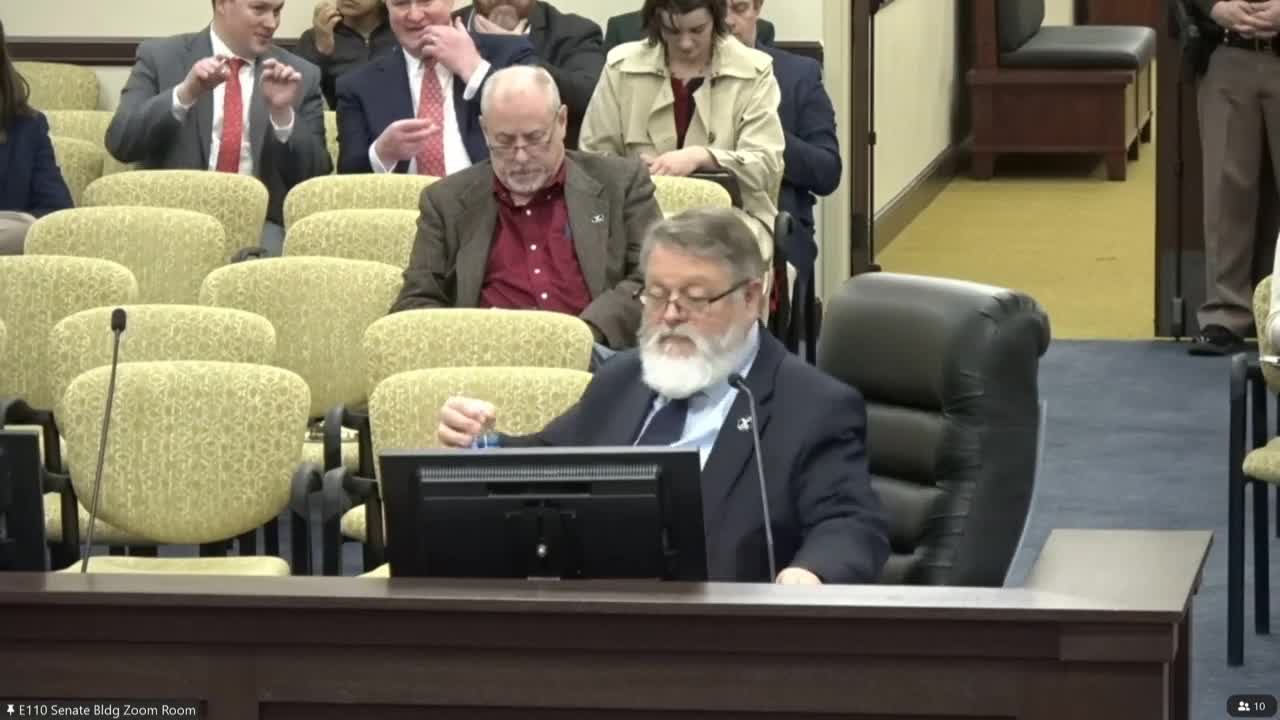Committee adopts first substitute of HB 70 to preserve Intermountain Power Plant connections
Get AI-powered insights, summaries, and transcripts
Subscribe
Summary
Representative Jack introduced HB 70, the Decommissioned Asset Disposition Amendments and summarized federal and regional reliability context and local engineering negotiations.
Representative Jack introduced HB 70, the Decommissioned Asset Disposition Amendments and summarized the technical and operational background: federal oversight by the Federal Energy Regulatory Commission and delegated reliability responsibilities to the North American Electric Reliability Corporation (NERC), the role of the Western Electricity Coordinating Council (WECC) and past work by the Decommissioned Asset Disposition Authority and the Jackson Walker report.
Jack said the first substitute was drafted after site visits and negotiations with plant engineers and the Decommissioned Asset Disposition Authority. According to Jack, the substitute “allows for one of the coal plants to stay connected, one of them to be put in standby mode, and allows the new IPP renewed to use the other switchyard space to connect their three synchronous condensers.” Jack said the approach would keep existing capacity available to serve growth in Utah and described the change as a lower-cost, faster option than demolishing the coal units and rebuilding capacity elsewhere. Jack also explained that the IPP renewed project is two natural-gas plants that will feed California on the DC line while the retained coal capacity would serve Utah.
Representative Shipp and Representative Shelley asked technical and policy questions about the plan. The sponsor explained that the Jackson Walker report indicated there is room in the air permit for two gas plants and one of the existing coal units, and that the substitute keeps one coal unit connected while freeing a switch position for the synchronous condensers. The sponsor said the change would “bring 900 new megawatts into Utah” (as referenced in testimony) and that transmission rights and contractual capacity on existing 345 kV lines from Delta to Mona would be part of separate asset-disposition negotiations.
Cameron Cowen, general manager of the Intermountain Power Agency, spoke during public comment and thanked Representative Jack for productive conversations, saying the agency appreciated “listening to us and hearing our concerns and also trying to find collaborative solutions.”
Committee members adopted substitute 1 for HB 70 and then passed the first substitute out favorably by voice vote. The transcript records that the motions “pass unanimously”; no roll-call tallies were given in the hearing record.
The bill’s changes are framed as preserving operational options at Intermountain Power Plant (IPP) while allowing the IPP renewed project to proceed. No additional follow-up direction, implementation timeline, or fiscal figures were provided in the committee record.
